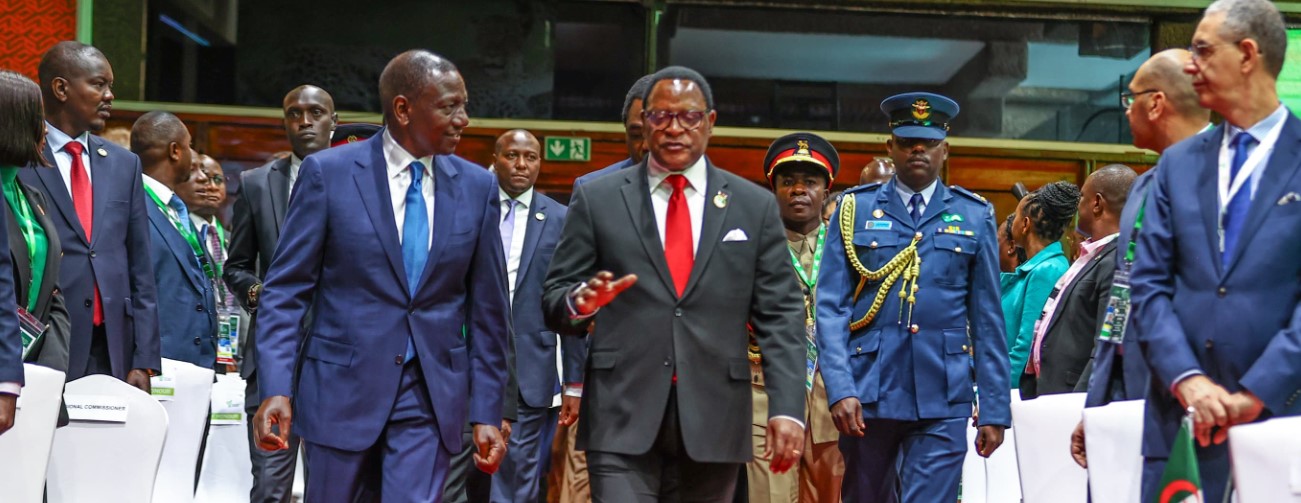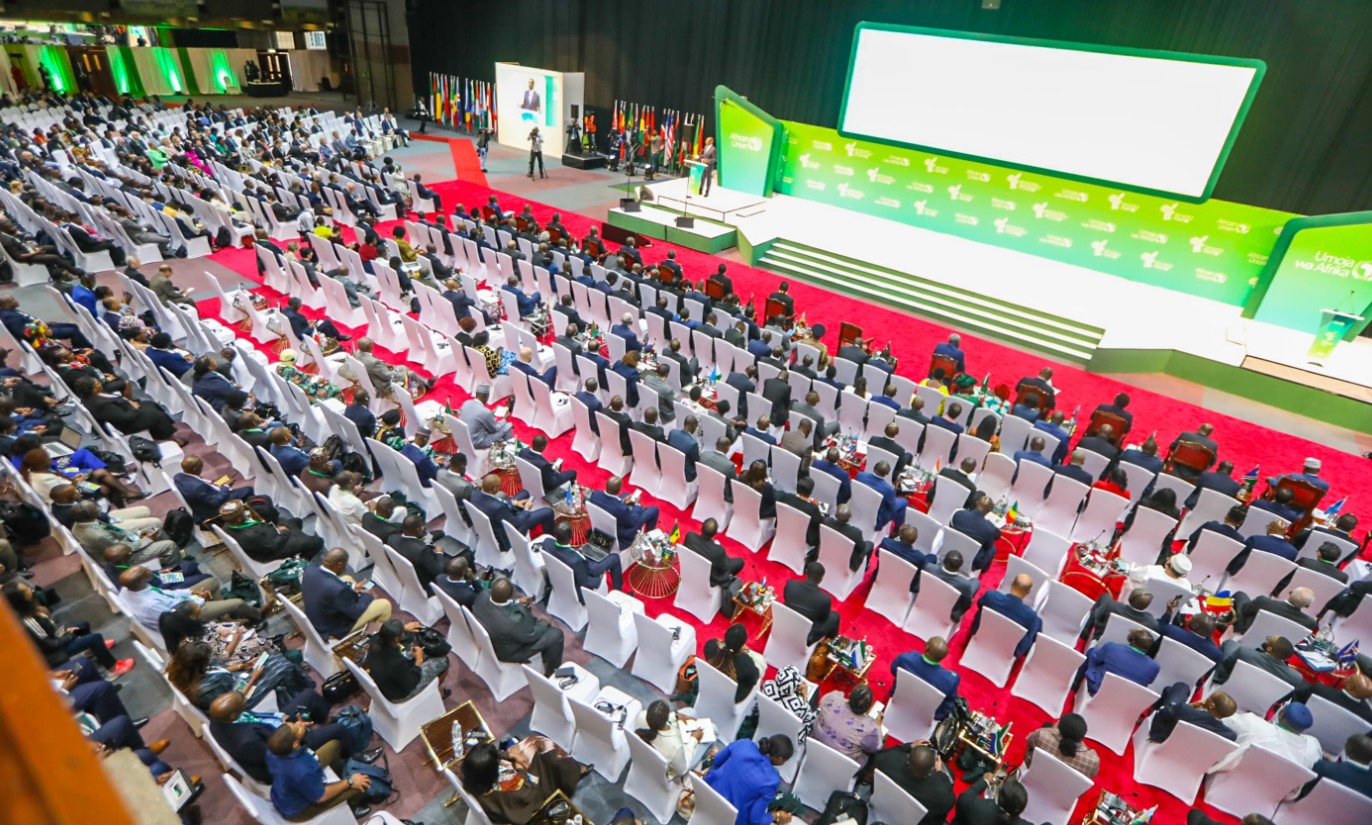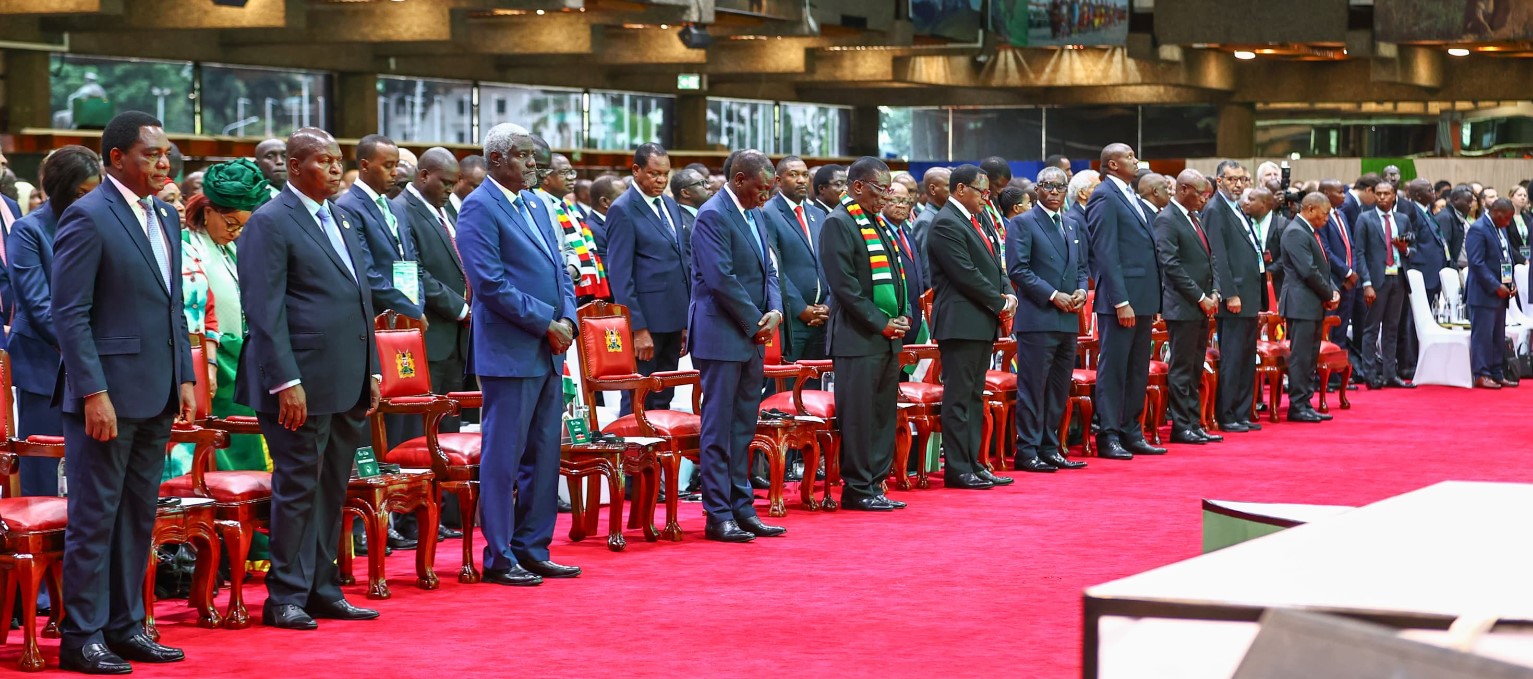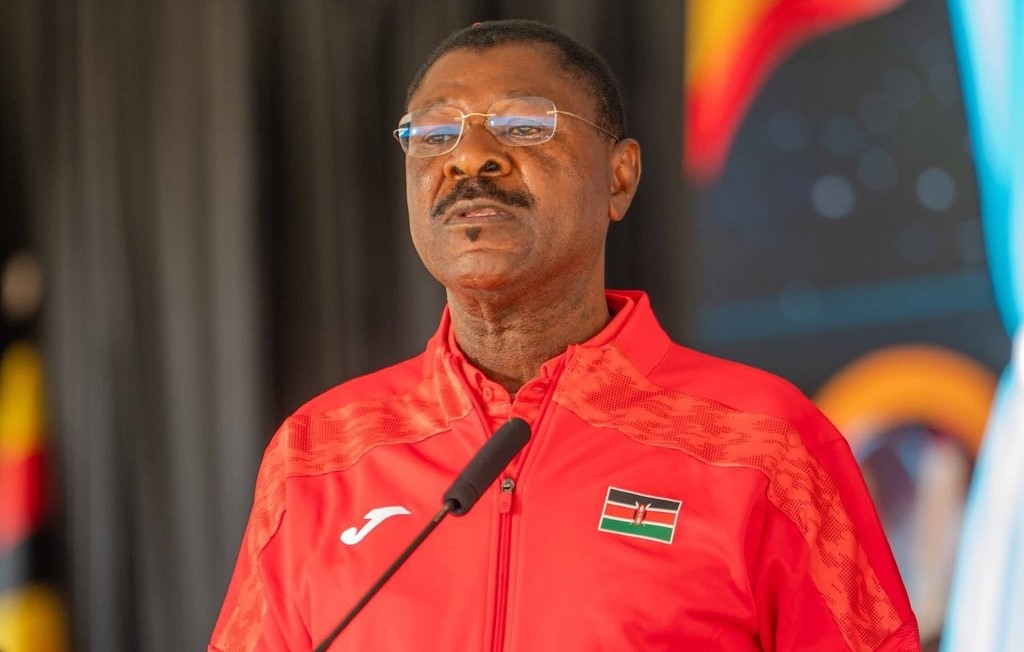African states commit to increasing fertiliser production and soil health

President Ruto stressed the urgency of addressing soil health and fertiliser usage and the need to prioritise investments in nitrogen fertiliser production.
African countries have committed to increasing their domestic production and distribution of certified-quality organic and inorganic fertilisers by 2034.
The objective of the declaration made during the Africa Fertiliser and Soil Health Summit held at the Kenyatta International Convention Centre on Thursday is to triple the current production levels to address the continent's agricultural needs.
More To Read
- Experts warn of rising hidden hunger in Nairobi households
- Africa’s food security challenge: G20 calls for boost in trade and sustainable farming solutions
- World Bank warns soaring fertiliser prices could drive up Kenya’s food production costs
- Health budget falling short of Abuja Declaration and impact, UHC Healthcare
- ActionAid warns of crisis as austerity slashes African health, education workers’ pay
- 20,000 tonnes of fertiliser arrive at Mombasa port as planting season starts
Known as the Nairobi Declaration, the agreement outlines strategies and commitments to address these challenges and promote sustainable agricultural development in Africa by improving access and affordability of farm inputs, especially for smallholder farmers, who constitute a significant portion of Africa's agricultural workforce.
The goal is to provide targeted agronomic recommendations to at least 70 per cent of smallholder farmers, tailored to specific crops, soils, and climatic conditions, thereby enhancing the efficient and sustainable use of fertilisers by 2034.
Africa annually produces approximately 30 million metric tonnes of mineral fertiliser, a significant portion of which is exported, rendering many member states overly reliant on imported products. To mitigate this dependence, African states have committed to supporting natural gas-producing countries on the continent to bolster fertiliser manufacturing and stabilise prices.
At the summit, President William Ruto stressed the urgency of addressing soil health and fertiliser usage and the need to prioritise investments in nitrogen fertiliser production.
“We have very important issues to reflect upon and resolve as a matter of urgency. Therefore, as we continue our deliberations, I urge this summit to pay particular attention to several critical areas, including prioritising investments in nitrogen fertiliser production facilities,” said Ruto.
He also highlighted the importance of effective subsidy programmes and leveraging the African Continental Free Trade Area for market access.
Citing findings from the Guiding Acid Soil Management Investments in Africa project, the President revealed that 15% of agricultural soils in Africa suffer from acidity issues, leading to land degradation and reduced crop productivity.
 President William Ruto and other African heads of state and government at the Africa Fertiliser and Soil Health Summit, Kenyatta International Convention Centre, Nairobi, on Thursday, May 9, 2024. (Photo: PCS)
President William Ruto and other African heads of state and government at the Africa Fertiliser and Soil Health Summit, Kenyatta International Convention Centre, Nairobi, on Thursday, May 9, 2024. (Photo: PCS)President William Ruto and other African heads of state and government at the Africa Fertiliser and Soil Health Summit, Kenyatta International Convention Centre, Nairobi, on Thursday, May 9, 2024. (Photo: PCS)
"To achieve Africa's green revolution, we must design effective subsidy programmes that support both immediate productivity needs and long-term soil health," Ruto added.
Moussa Faki Mahamat, Chairperson of the African Union Commission, echoed Ruto's concerns about soil degradation and the need for concerted action.
"The current pace of soil degradation in Africa has attained a threshold that requires proactive attention and action from all to halt the degradation and commence effective soil health management,” said Moussa.
Moussa also highlighted the disparity between current fertiliser usage rates and the target set in the Abuja declaration, noting the need to boost local fertiliser production and make it more affordable for farmers. To achieve this goal, he called for optimising existing continental assets, such as the African Centre for Fertiliser Development.
The member states pledged to reverse land degradation and restore soil health on at least 30 per cent of degraded soil by 2034, which entails fully operationalising the Africa Fertiliser Financing Mechanism (AFFM) to enhance the production, procurement, and distribution of fertilisers as well as soil health interventions.
This year's summit further provided a platform for African leaders, policymakers, private-sector players, farmer organisations, and development agencies to strategize on leveraging fertiliser and soil health initiatives to drive pro-poor productivity growth in African agriculture. It builds upon the objectives outlined in the 2006 Abuja Declaration on Fertiliser for the African Green Revolution, aiming to increase fertiliser use to alleviate hunger and poverty across the continent.
The leaders acknowledged the persistent challenges in fulfilling commitments made in various declarations, expressing concern over the slow progress since the Abuja Declaration in 2006.
Despite efforts, Africa's fertiliser consumption has only marginally increased from an average of 8 kg/ha to about 18 kg/ha in 2022, falling short of the targeted 50kg/ha. This limited progress contrasts with the global average fertiliser consumption rate of about 135 kg/ha.
Leaders voiced deep concern over Africa's overreliance on imported fertilisers, especially non-phosphate-based ones, which expose the continent to external market fluctuations and price volatility. The recent global fertiliser crisis exacerbated this reliance, resulting in a year-on-year decline of 25% in fertiliser consumption in 2022.
 President William Ruto and other African heads of state and government attend the Africa Fertiliser and Soil Health Summit, Kenyatta International Convention Centre, Nairobi, on Thursday, May 9, 2024. (Photo: PCS)
President William Ruto and other African heads of state and government attend the Africa Fertiliser and Soil Health Summit, Kenyatta International Convention Centre, Nairobi, on Thursday, May 9, 2024. (Photo: PCS)During the Africa Fertiliser and Soil Health Summit, Kenyatta International Convention Centre, Nairobi County.
Top Stories Today
















































